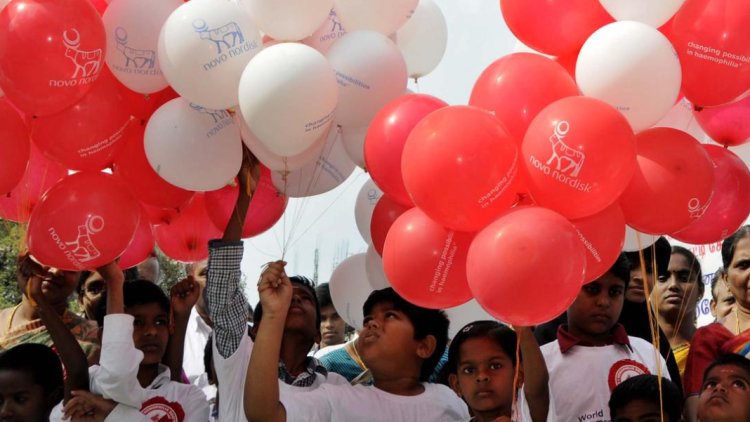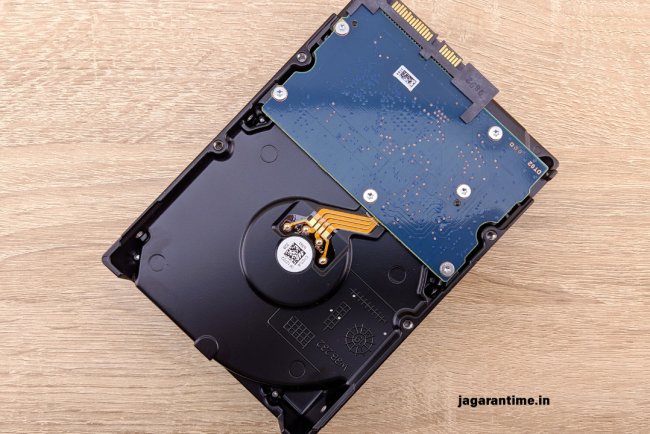A Call to Action: Haemophilia Patients in India Need Timely Diagnosis and Affordable Treatment
India’s haemophilia patients face delayed diagnosis and costly treatment. It’s time to ensure early screening, affordable care, and policy support to save lives.

A Call to Action: Haemophilia Patients in India Need Timely Diagnosis and Affordable Treatment
Every year, World Haemophilia Day on April 17 reminds us of the millions around the globe who struggle daily with bleeding disorders—most of them silently. In India, the situation is particularly dire. With an estimated 1.36 lakh haemophilia patients, only about 25,000 have been officially identified and registered. The rest remain in the shadows—undiagnosed, untreated, and unheard.
This is not just a healthcare issue. It is a humanitarian crisis that demands our urgent attention.
What is Haemophilia?
Haemophilia is a genetic bleeding disorder in which the blood doesn’t clot properly due to a deficiency or absence of clotting factors—most commonly Factor VIII (Haemophilia A) or Factor IX (Haemophilia B). Even minor injuries can result in prolonged bleeding. Without timely intervention, internal bleeding can damage joints, muscles, and organs—sometimes fatally.
The Indian Scenario: A Silent Epidemic
Despite being home to the world’s second-largest population, India lags significantly in haemophilia care. Several issues contribute to this:
- Lack of awareness: Most patients and families don’t know what haemophilia is until a serious medical episode occurs.
- Delayed diagnosis: Many patients get diagnosed only after multiple hospital visits or severe bleeding incidents.
- Urban-rural disparity: Diagnostic facilities and specialist care are concentrated in urban centers.
- Costly treatment: Clotting factor concentrates—the main line of treatment—are often too expensive for the average family to afford.
- Limited government support: While some state governments provide free factors, the supply is inconsistent and insufficient.
The Human Cost
Behind every statistic is a child missing school, a teenager avoiding sports, or an adult unable to work. Many suffer from joint deformities, chronic pain, and emotional trauma. Families spend their life savings or fall into debt just to keep their loved ones alive.
Haemophilia is not contagious. It is not preventable. But it is manageable—if diagnosed early and treated regularly.
What Needs to Change?
We need systemic, coordinated action at all levels—government, healthcare institutions, media, and civil society. Here’s how we can make a difference:
1. Early Screening and Diagnosis
- Introduce newborn screening for families with a history of bleeding disorders.
- Set up diagnostic centers in district hospitals and primary health centers.
2. Affordable and Accessible Treatment
- Ensure free or subsidized supply of clotting factors through public hospitals.
- Promote domestic manufacturing of factor concentrates to reduce costs.
3. National Haemophilia Registry
- Implement a centralized patient registry to track cases, treatment needs, and outcomes.
- Accurate data will help in better resource allocation and planning.
4. Education and Awareness
- Train healthcare providers—especially in rural areas—to recognize and refer suspected cases.
- Run awareness campaigns targeting schools, communities, and parents.
5. Psychosocial Support
- Establish support groups and counseling services.
- Encourage inclusion of haemophilia patients in education, sports, and workplaces.
A Call to Policy Makers
Healthcare should not be a privilege. It’s a basic right. We urge policymakers to:
- Declare haemophilia a notifiable disease to improve tracking.
- Integrate haemophilia care into existing national health missions.
- Increase funding and include haemophilia treatment under Ayushman Bharat and state insurance schemes.
You Can Make a Difference
Even if you’re not a policymaker or doctor, you can still help:
- Donate to organizations working for haemophilia care.
- Share this post to raise awareness.
- If you know someone with unexplained bruising or bleeding issues—urge them to get tested.
India has the medical expertise, the technology, and the infrastructure. What we need now is the will to act. Haemophilia patients in India deserve a life of dignity, mobility, and hope.
Let’s not wait for another World Haemophilia Day to speak up.
Let’s make every day a step toward better care, earlier diagnosis, and affordable treatment for all.
Together, we can break the silence. Together, we can save lives.
What's Your Reaction?




















